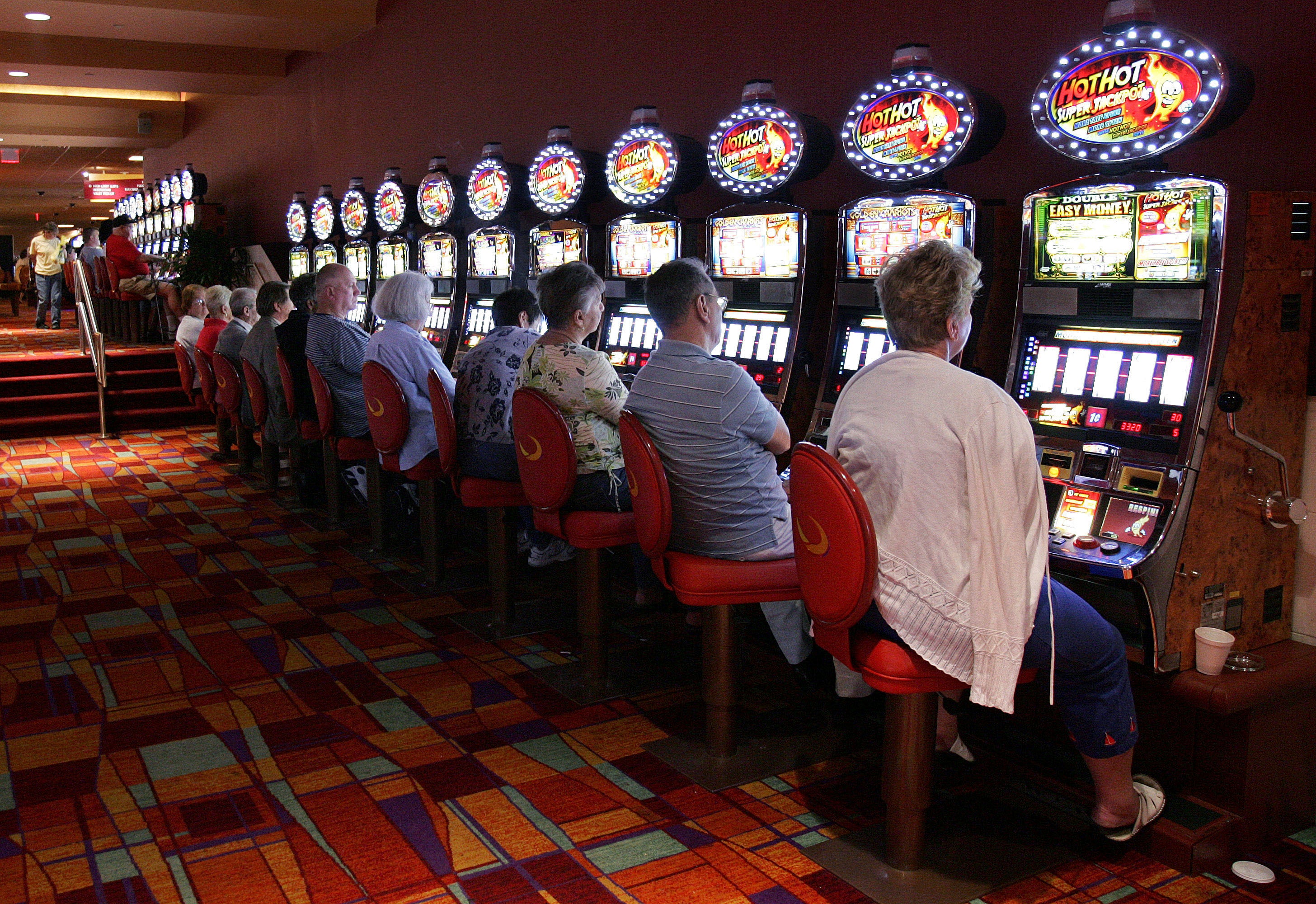Pennsylvania casinos ask court to force state to tax skill games found in stores equally to slots
The owners of twelve Pennsylvania casinos are asking the state’s highest court to declare that a tax on slot machine revenue is unconstitutional because the state doesn’t impose it broadly on cash-paying electronic game terminals known as skill games that can be found in many bars and stores

Your support helps us to tell the story
From reproductive rights to climate change to Big Tech, The Independent is on the ground when the story is developing. Whether it's investigating the financials of Elon Musk's pro-Trump PAC or producing our latest documentary, 'The A Word', which shines a light on the American women fighting for reproductive rights, we know how important it is to parse out the facts from the messaging.
At such a critical moment in US history, we need reporters on the ground. Your donation allows us to keep sending journalists to speak to both sides of the story.
The Independent is trusted by Americans across the entire political spectrum. And unlike many other quality news outlets, we choose not to lock Americans out of our reporting and analysis with paywalls. We believe quality journalism should be available to everyone, paid for by those who can afford it.
Your support makes all the difference.The owners of twelve Pennsylvania casinos have asked the state's highest court to declare that a tax on slot machine revenue is unconstitutional because the state doesn't impose it broadly on cash-paying electronic game terminals known as skill games that can be found in many bars and stores.
The lawsuit, filed Monday, could endanger more than $1 billion in annual tax revenue that goes toward property tax rebates and economic development projects.
The state's collection of the roughly 54% tax on casinos' revenue from slot machines, but not on revenue from skill game terminals, violates constitutional guarantees designed to ensure that taxation is fair, the casino owners contend.
“There is no basis for requiring licensed entities to pay about half of their slot machine revenue to the Commonwealth while allowing unlicensed entities to pay no tax on such revenue,” they argue in the lawsuit.
The lawsuit asks the court to force the state to apply the same tax rate to skill games or to bar it from collecting taxes on slot machines.
The casinos' owners include dozens of principals, as well as major casino companies such as Caesars Entertainment Inc. and Penn Entertainment Inc.
The state Department of Revenue declined comment on the lawsuit. The Pennsylvania Gaming Control Board said it had just learned of lawsuit and was evaluating it.
Pennsylvania brings in more tax revenue from casinos than any other state, according to American Gaming Association figures.
The fate of the lawsuit, filed by the owners of 12 of the state's 17 licensed and operating casinos, is likely tied to the outcome of a separate lawsuit that the state Supreme Court is considering.
That case — between the state attorney general's office and Pace-O-Matic Inc., a maker of skill games — could decide whether the skill games that have become commonplace in nonprofit clubs, convenience stores, bars and elsewhere are unlicensed gambling machines and, as a result, must be shut down.
A lower court found that the Pace-O-Matic games are based on a player’s ability and not solely on chance, like slot machines and other traditional gambling games that are regulated by the state.
For years, the state has maintained that the devices are unlicensed gambling machines that are operating illegally and subject to seizure by police. Machine makers, distributors and retailers contend that they are legal, if unregulated, games that are not subject to state gambling control laws.
Lawmakers have long discussed regulating and taxing the devices, but any agreement has been elusive.
It's unclear exactly how many skill game terminals there are in Pennsylvania, but the American Gaming Association estimates there are at least 67,000, which would be more than any other state.
Casinos operate roughly 25,000 regulated slot machines on which gamblers wagered almost $32 billion last year and lost just over $2.4 billion. The state and casinos effectively split that amount.
___
Follow Marc Levy at www.twitter.com/timelywriter.